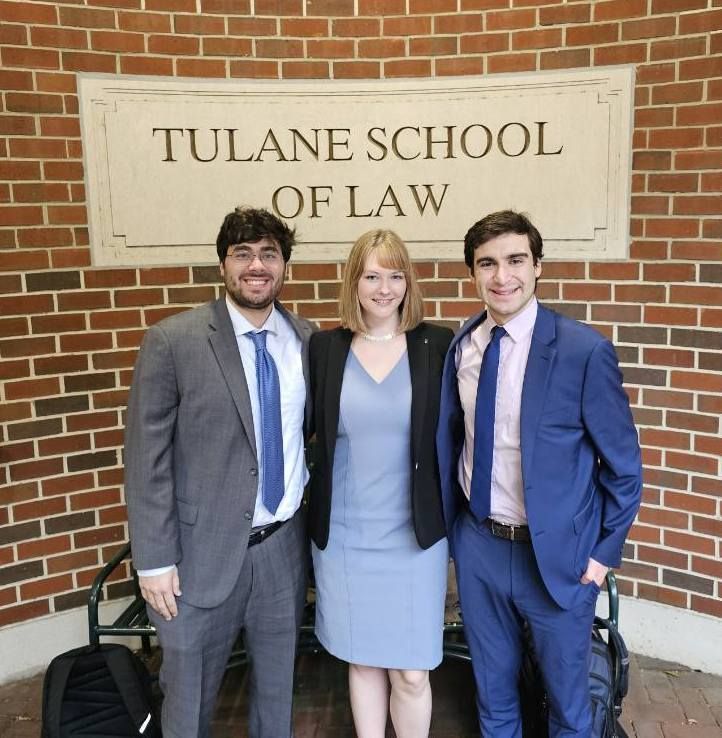Mastering the Gridiron: AUWCL Students Navigate NFL Contract Negotiations
Insights from the Tenth Annual Tulane Professional Football Negotiation Competition
American University Washington College of Law students Mariah Stephens (3L), Rafael Hernandez (3L), and Rami Alkhafaji (2L) participated in the Tenth Annual Tulane Professional Football Negotiation Competition on January 26th-27 in New Orleans, Louisiana. Representing the WCL Transaction Negotiation Team, they were coached by Professor Thomas Williams.
The competition, run by the Tulane Sports Law Society, is a simulated contract negotiation using real- life negotiation dilemmas and real upcoming NFL free agents.
“We supported each other every step of the way, from preparing for the competition all the way through our negotiation rounds,” said Alkhafaji. “This competition was a great learning experience. WCL truly cares about its students and the community has been supportive through it all.”
The law students competed in a round- robin style competition with more than 40 teams. A few weeks prior to the competition, the team received a prompt and wrote a brief with a market analysis about a football player in the industry. In preparation for the competition, they researched player game statistics and made player comparisons to assess each player’s market worth. In three rounds, each team negotiated three separate problems for three separate players.
According to Stephens, the main components of the negotiation are the actual contract, money amount, signing bonus, per game roster bonus, lump sum roster bonus, work out bonus, option bonus, and how much of those are fully guaranteed or partially guaranteed based on injury, skill or price cap to the players in question.
"Playing with numbers and figuring out a balance is an art in negotiation,” she said. “This competition allowed me to utilize my liking for numbers and business in a legal environment alongside my peers.”
“The growth I saw in the team, both collectively and in individual members, and their ability to navigate complicated negotiations in this discrete area was impressive, especially given the structure of the competition which strictly limited the time teams had to prepare between rounds.” Williams said. “I couldn't have been more impressed with their performance. In fact, a number of judges took me aside over the weekend to comment at length on the quality of their performance.”
Story by Hasini Jayawardena.
